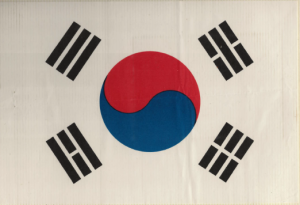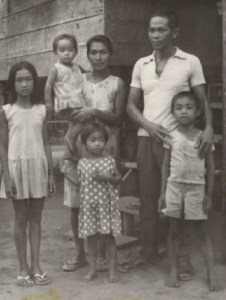By Carlos Uriel Contreras Flores
Hello,
In this post I will let you know my experience in Toronto at the offices of Plan Canada, a visit I made last week.
Some weeks ago, Professor Dominique Marshall asked me to check some irreplaceable documents that Plan Canada had in their offices in Toronto, and that are part of the historical archives of the organization. These are basically letters and photo albums of some of their most important and lasting donors and sponsors.
I visited the city of Toronto the weekend of the 25 of July, and after that I went to the offices of Plan Canada on July 28 and 29. Bev Kinkaid, Senior Manager of Marketing and Communications of Plan Canada, received me warmly and introduced me to some of her colleagues. She gave me a tour around their new offices. They are really awesome, modern, spacious and very comfortable. Most important of all, they make you feel creative and innovative. It truly is a nice place to work.
After arriving in my provisional office and taking a look at the two boxes full of photographic albums and letters between the Foster Parents and their sponsored children, I began digitizing them. I found letters and photos dating back from the 70’s, the 80’s, and the 90’s, and of children who now must be around 50 years old. The material I found was about, mainly, children from South Korea, Colombia, Bolivia, Ecuador, Vietnam, Philippines, Ethiopia and Mali.
At least half of the material I went through was part of the collection of one of the most beloved sponsors of Plan Canada. She and her husband, who would like to remain anonymous, were dedicate supporters of Foster Parents, and never stopped participating in the program. They were sponsors for various decades, until their death. Her last donation to Plan Canada was the collection of photographic albums and letters that she had kept over the years. These were valuable documents that needed to be preserved for the future generations, and for the historical legacy of the organization. This is why it was so important to digitize them.

South Korean flag given to one of the sponsors by one of their sponsored children. Property of Plan Canada.
I also went through the annual reports of Plan Canada; before year 2006, they would not have an electronic file of these, so it was also necessary to digitize them so that they be able to keep a copy of ther their archival records safely, and in order to make them available.
It took me two days of intense work to finally finish reviewing all this material, but it was worth it. The value of these documents is indescribable for the history of humanitarian aid and international development. I am glad I had the opportunity to visit this NGO, leader in its field, and with such an impact on developing countries. Knowing their history is important now, but it will get even more necessary in a longer term. With the work I did during the two days I was there, future historians and archivists will have the tools to study Plan Canada and Foster Parents and their contributions for making a world a better place to live.
Notes:
- These digitised files are now in the hands of the Canadian Network of Humanitarian History, and may be consulted, with some restrictions. Please contact us.
- For a general history of Plan International, done on ethe occaison of the 70th anniversary, click HERE.
- The archives of Plan International are localed at the University of Rhode Island – you can see the finding aid it here. Visit to URI are done by appointment.
- An official history of foter Parents Plan Interntional was published in 1984, written by Henry D. Molumphy, entitled For Common Decency: The History of Foster Parents Plan, 1937-1983, Warwick, Rhode Island. The recent book on Child Sponsorship: Exploring Pathways to a Brighter Future, edited by Brad Watson, Matthew Clarke, Palgrave Macmillan, 2015, discusses the work of Plan.
Thank you to Beverly Kinkaid for her assistance in finding the information for this post.





